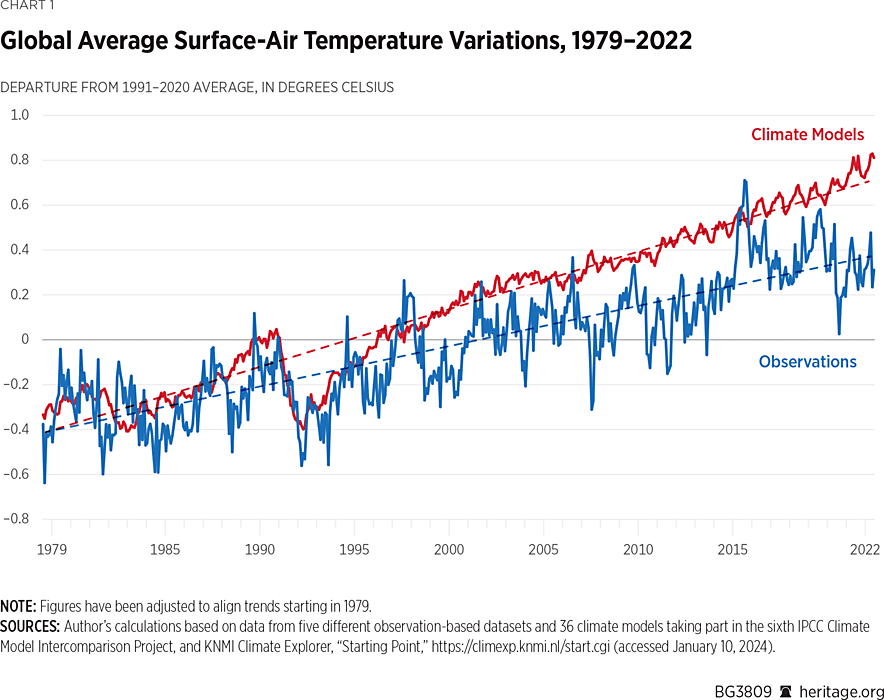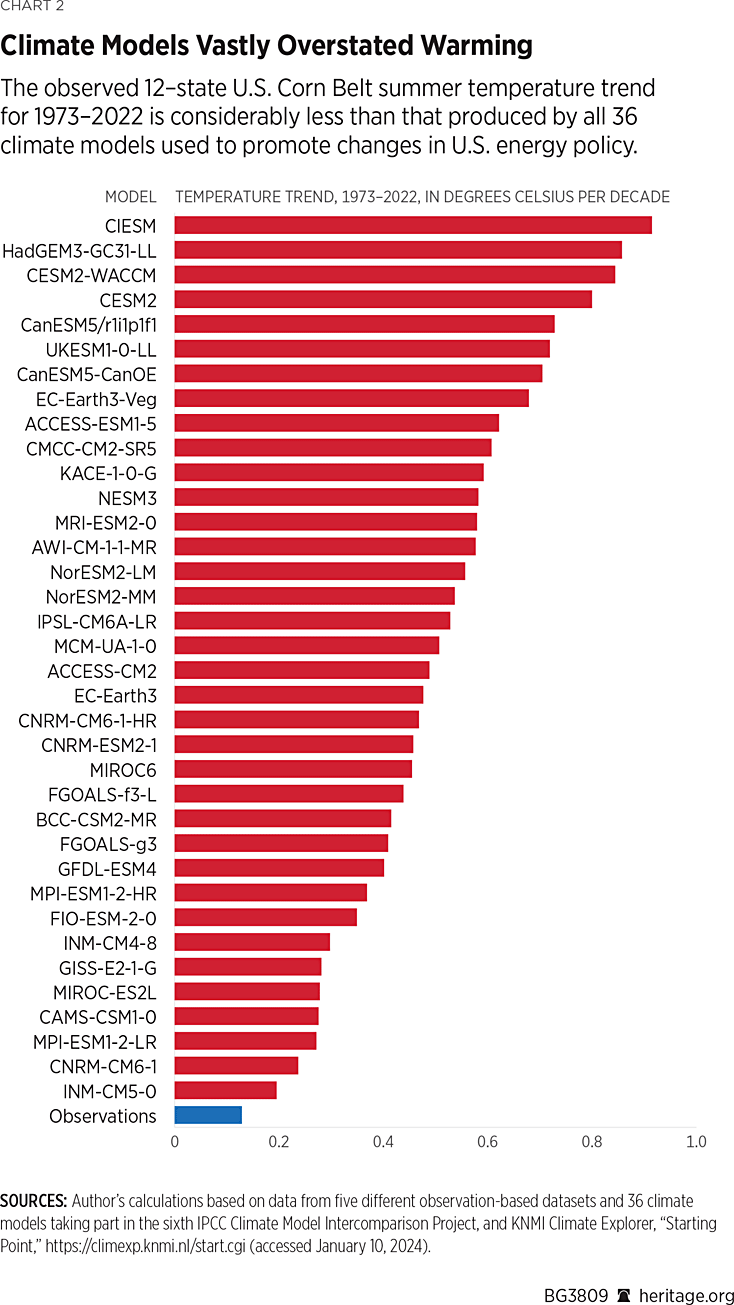

In a report released by The Heritage Foundation earlier today, Visiting Fellow Roy Spencer critically evaluates the accuracy of computerized climate models in predicting global warming and their impact on energy policy.
In a report released by The Heritage Foundation earlier today, Visiting Fellow Roy Spencer critically evaluates the accuracy of computerized climate models in predicting global warming and their impact on energy policy. The report "Global Warming: Observations vs. Climate Models" claims that the warming of the global climate system over the past half-century has averaged 43 percent less than the predictions made by these models.
Key findings from the report suggest that the observed rate of global warming is significantly weaker than nearly all computerized climate models have indicated. Furthermore, it argues that climate models, which are used to guide energy policy, fail to conserve energy—a foundational requirement for any physically based climate system model. Based on these observations, the report advocates for public policy to be informed by actual climate observations, which it describes as "rather unremarkable," as opposed to relying on models that it claims exaggerate climate impacts.

The report delves into the causes of temperature change, emphasizing the balance between energy gain and loss. It draws on examples such as a pot of water on a stove, wearing a coat in winter, and changes in air temperature throughout the day to illustrate the concept of energy balance. It also points out the tiny energy imbalance observed in the climate system, suggesting that some portion of recent warming could be natural, thus challenging the mainstream climate research community's assumption of a pre-human energy equilibrium.
Spencer's report scrutinizes the construction and functioning of climate models, highlighting their reliance on tuning adjustments or "fudge factors" to prevent them from drifting in temperature over time. Despite these efforts, the report notes that many models still struggle with energy conservation.
The document argues against the narrative of human-induced climate change, contending that there are no distinctive "fingerprints" of human-caused warming. It also examines the direct warming effect of CO2 and the amplification from feedbacks in climate models, suggesting a wide range of warming projections and questioning the models' sensitivity to CO2-induced forcing.
Comparative charts within the report showcase discrepancies between climate model predictions and observed temperatures across different regions and layers of the atmosphere. For instance, the report highlights that all 36 models surveyed produced higher warming rates than observed in the United States during summer.

In conclusion, the report by Spencer, a Principal Research Scientist at the University of Alabama in Huntsville, cautions policymakers against basing decisions on climate models that it claims overpredict warming. It suggests that the reliance on these models is based on faith in assumptions rather than scientific evidence, and it calls for caution due to uncertainties in climate projections and explanations of past changes.
The Heritage Foundation's report has potential implications for future climate policy and the public's understanding of climate change. It critically evaluates the tools used to predict climate change and suggests a need for a more observationally based approach to policy-making.
Read the full report at The Heritage Foundation's website.